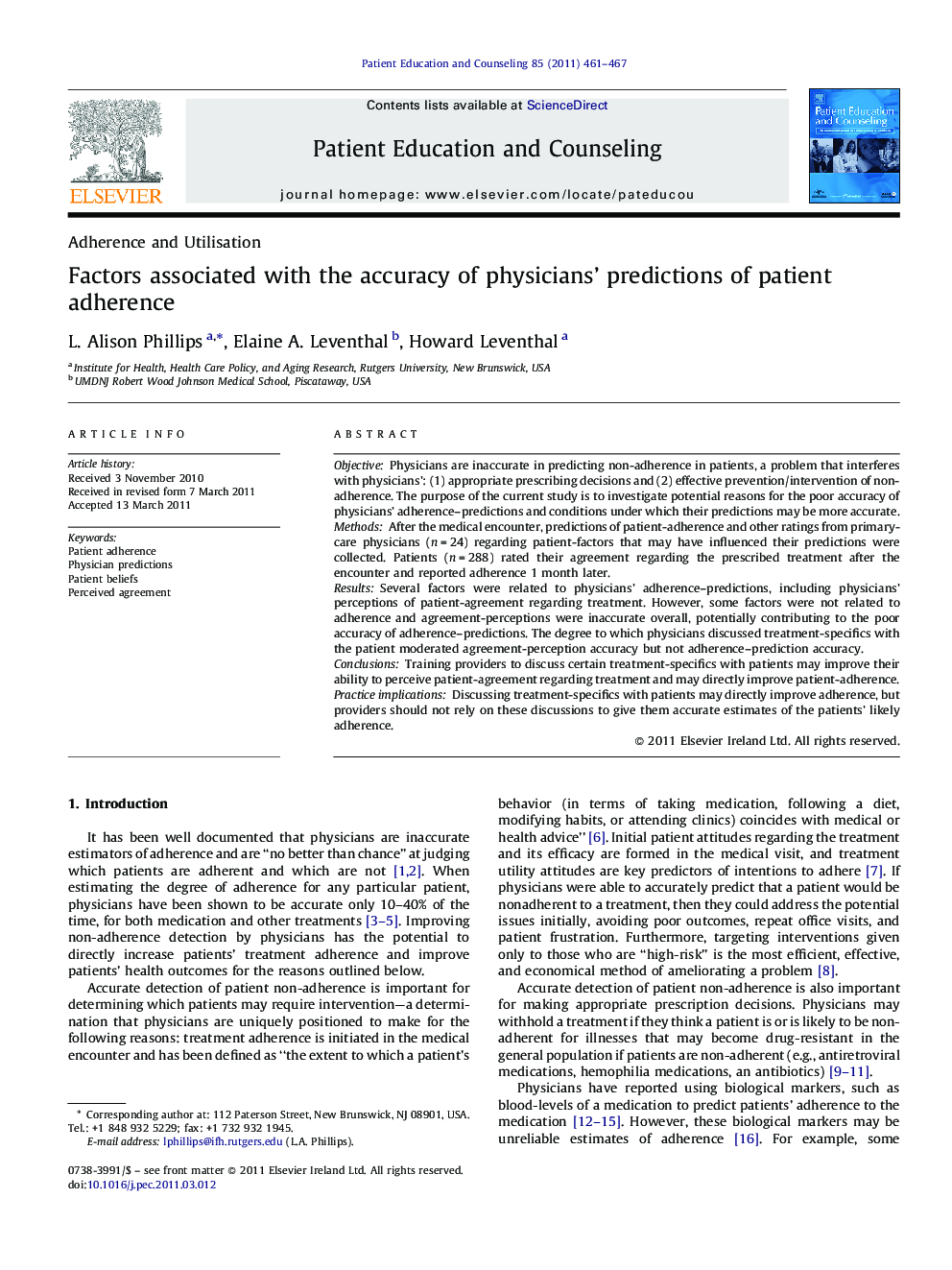| Article ID | Journal | Published Year | Pages | File Type |
|---|---|---|---|---|
| 6153856 | Patient Education and Counseling | 2011 | 7 Pages |
ObjectivePhysicians are inaccurate in predicting non-adherence in patients, a problem that interferes with physicians': (1) appropriate prescribing decisions and (2) effective prevention/intervention of non-adherence. The purpose of the current study is to investigate potential reasons for the poor accuracy of physicians' adherence-predictions and conditions under which their predictions may be more accurate.MethodsAfter the medical encounter, predictions of patient-adherence and other ratings from primary-care physicians (n = 24) regarding patient-factors that may have influenced their predictions were collected. Patients (n = 288) rated their agreement regarding the prescribed treatment after the encounter and reported adherence 1 month later.ResultsSeveral factors were related to physicians' adherence-predictions, including physicians' perceptions of patient-agreement regarding treatment. However, some factors were not related to adherence and agreement-perceptions were inaccurate overall, potentially contributing to the poor accuracy of adherence-predictions. The degree to which physicians discussed treatment-specifics with the patient moderated agreement-perception accuracy but not adherence-prediction accuracy.ConclusionsTraining providers to discuss certain treatment-specifics with patients may improve their ability to perceive patient-agreement regarding treatment and may directly improve patient-adherence.Practice implicationsDiscussing treatment-specifics with patients may directly improve adherence, but providers should not rely on these discussions to give them accurate estimates of the patients' likely adherence.
